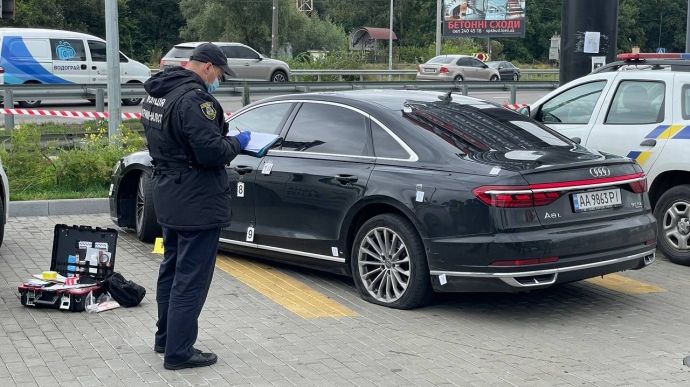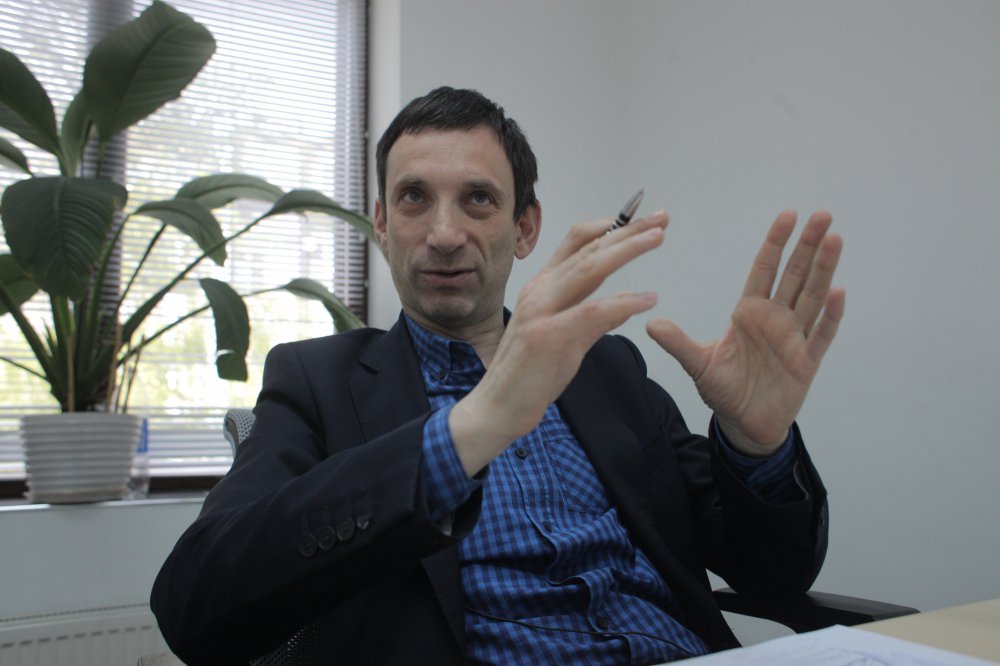On the same day of the attempted assassination, President Zelenskyy delivered a speech to the 76th session of the United Nations General Assembly. He called the perilous incident the price of change and reform in Ukraine (President.gov.ua, September 23). Moreover, Zelenskyy told journalists gathered in Turtle Bay that he was quite calm about any intimidation as “it seems to me that this is a transition to another level of relations between certain groups and the authorities” (President.gov.ua, September 22).
It appears that Zelenskyy was alluding to the Law on Oligarchs, which the Ukrainian parliament voted on one day after the assassination attempt. The bill aims to compel “oligarchs”—particularly wealthy and influential businessmen—to register themselves and refrain from using their money or assets to influence the political process. Under the proposed law, “oligarchs” would be forbidden from financing political parties or taking part in privatization tenders, while top officials—including the president, prime minister and head of the central bank—would be required to declare any dealings they had with them (UAWire, September 24).
The opposition harshly criticized the legislation for its opacity. According to Arthur Herasymov, the co-chair of the European Solidarity party headed by former president Petro Poroshenko, the legislation could lead to the usurpation of power by Zelenskyy as it might be selectively applied to his opponent, Poroshenko (Glavcom.ua, September 19). The former Ukrainian head of state famously owns the confectionary giant Roshen as well as automotive factories, a shipyard and a television channel.
The investigation of the attack on Shefir is looking into Moscow’s potential involvement. But within hours of the shooting, Shefir organized a press conference, where he ruled out any possibility that the assassination attempt was motivated by his own professional activities. According to the presidential aide, he had mostly been busy with producing Kvartal-95, the television comedy show Zelenskyy ran before he became president (Unn.com.ua, September 21).
Local investigative journalists, on the other hand, had previously unearthed evidence that in the wake of Zelenskyy’s electoral victory, Serhii Shefir had secretly met with a number of Ukrainian tycoons, including Rinat Akhmetov, at his residency outside of Kyiv (Radiosvoboda.org, October 8, 2020). And in 2019, Shefir was photographed attending the birthday party of Hryhoriy Surkis, a businessman and member of the pro-Russian party Opposition Platform–For Life, where he also met with oligarchs Ihor Kolomoiskyi, Henadiy Boholiubov, Viktor Pinchuk, and others (Pravda.com.ua, September 7, 2019).
Such increased scrutiny on subversive Russian influence over Ukrainian politics, sparked by last month’s attack on Zelenskyy’s top assistant, could inadvertently compel a reshuffling of the president’s entire close entourage. Many of these individuals are notorious for their controversial backgrounds, including pro-Kremlin attitudes as well as more direct ties to Moscow. Among the most conspicuous within Zelenskyy’s circle are Oleg Tatarov, Oleksandr Dubinsky, Oleksiy Arestovych and Ruslan Demchenko.
In August 2020, Zelenskyy appointed Oleg Tatarov as a deputy head of the Presidential Office. Previously, Tatarov held the position of deputy head of the Main Investigation Department in the Ministry of Internal Affairs during Viktor Yanukovych’s presidency. He was also a vocal critic of the EuroMaidan protests. Reportedly, in December 2013, during the height of the EuroMaidan Revolution, Tatarov received the order of “Honored Lawyer of Ukraine,” signed by then-president Yanukovych (Pravda.com.ua, February 18, 2021). Nonetheless, as recently as this past spring, Zelenskyy has called Tatarov a “professional” in his new team (Babel.ua, May 20).
On January 11, 2021, the United States Department of the Treasury sanctioned Oleksandr Dubinsky, a former leader of Zelenskyy’s Servant of the People (SoP) party. According to US officials, he was part of a Russian-linked foreign influence network that attempted to manipulate the 2020 US presidential election (Treasury.gov, January 11). Shortly afterward, Dubinsky was removed from the SoP party and lost his position as the head of the party’s organization in the Kyiv region. But there was no public condemnation personally from Zelenskyy, either in his capacity as head of state or as the founder of SoP. Further legal inquiries into Dubinsky have also yet to be completed, and he remains an active lawmaker and blogger. Notably, Dubinsky still runs the vlog “Dubina TV” (YouTube, accessed October 4) after his previous account was banned by YouTube.
On December 1, the head of the Presidential Office, Andrii Yermak, appointed Oleksiy Arestovych as his non-staff advisor on strategic communications in the field of national security and defense (President.gov.ua, December 1, 2020). During this time, Arestovych became a spokesperson for the Ukrainian delegation to the Trilateral Contact Group on the Donbas conflict. Over the last several years, he has become a popular blogger and military expert. According to his public statements, between 1999 and 2005, he served at the Main Intelligence Directorate of Ukraine. In 2005, along with a leader of the Bratstvo (Brotherhood) party, Arestovych visited Moscow, where they both participated in a conference organized by Eurasian Movement leader, Aleksandr Dugin—a famous Russian, philosopher, far-right nationalist, and Eurasianist ideologue, who is said to have close relationships with the Kremlin (Gordonua.com, March 16).
In June 2020, Zelenskyy appointed Ruslan Demchenko as a first deputy secretary of the National Security and Defense Council of Ukraine. During the Yanukovych presidency, in 2013–2014, Demchenko reportedly became a “gray cardinal” at the Ministry of Foreign Affairs. He also oversaw messages sent out by Ukrainian Embassies during the EuroMaidan Revolution (Eurointegration.com.ua, June 16, 2020). Media accounts allege that Demchenko stood behind the preparations of the so-called “Kharkiv Pact,” which passed in the parliament in April 2010, when he was a first deputy foreign minister of Ukraine (Hromadske.ua, March 12). The bill extended the deadline for the stay of the Russian Black Sea Fleet in Crimea from the originally expected 2017 to 2042.
Read More:
- What the Pandora Papers tell about Zelenskyy, his offshore companies, and his favorite oligarch
- Zelenskyy’s new anti-oligarch law: populism or the real thing?
- Corruption and oligarchs still endanger Ukraine, European Court of Auditors report says
- The post-Soviet oligarchy and how it shaped national state politics | 30 Years of Freedom, p.2
- Why Ukrainian oligarchs are not only Ukraine’s problem, but the West’s too
- How did the Ukrainian oligarchy keep going after Euromaidan?
- Servants of the People or “Little Russian valets”. Zelenskyy party on course for the “Russian world”
- Zelenskyy’s first appointments: Kolomoiskyi’s lawyer, cronies, experts





